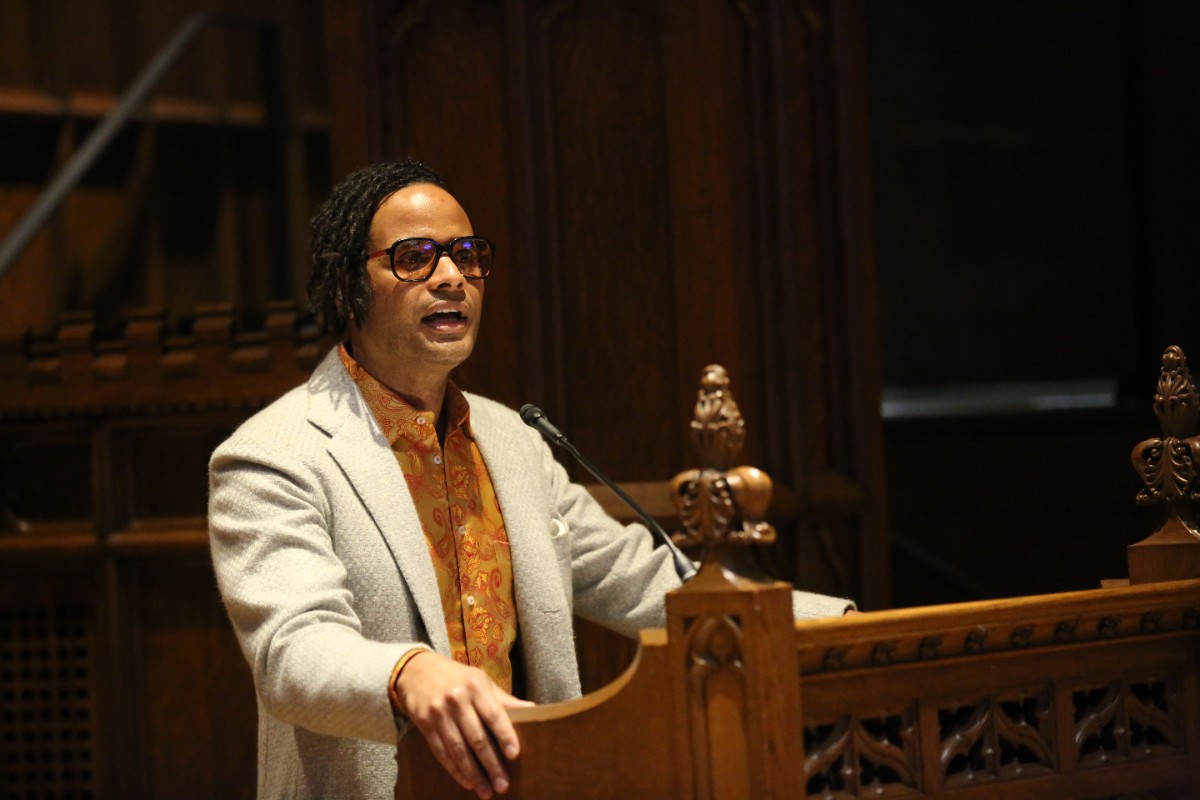A Message from the Director
Dear Gordon Institute Community,
This year, we have witnessed how civil society is rapidly being dismantled in unprecedented ways. From constitutional rights such as freedom of speech to the values of academic freedom, and from public institutions like the Department of Education to institutions of higher education, the major pillars of civil society are under attack. Students and faculty have been disciplined or detained for practicing their constitutional right to peaceful protest. Long established civil rights legislations are being subverted through executive orders threatening the very conditions for a democratic society.
The neoliberal project of Diversity, Equity, & Inclusion has become weaponized to not only further solidify and consolidate an ideology in institutional arrangements and policies that privileges, advantages, and normalizes the structural position of particular groups but to cultivate a culture that politically marks the non-white Other as suspicious and subject to potential disappearance. As part of this rhetoric, we have become the target of recently terminated federal grants, amounting to over four million dollars. Not only do I take serious issue with the unconscionable aims of these grant terminations, I also vehemently believe that something even greater is at stake: the foundation of civil society and democratic institutions, including the social good of education.
Education is more than just a means to acquire knowledge or skills; it is a fundamental pillar of democracy and social equity. As we learn from John Dewey, education is an essential institution for a democratic society. A robust public education system fosters critical thinking, civic engagement, and the capacity for individuals to advocate for their rights and communities. The social good of education lies in its ability to empower individuals, challenge systemic injustices, and cultivate informed, engaged citizens and differences. Hannah Arendt cogently argued that a new political order can be shaped, not through force and constraint, nor through persuasion, but through the social process and arrangement of education. Dismantling the social good of education and education research is not just an attack on institutions but on the very fabric of an equitable and just society.
As has been the history for marginalized, subjugated, and dispossessed communities, the Gordon Institute for Advanced Study will continue to create subversive spaces of collective care, study, knowledge-sharing, planning, and dreaming, especially through the ongoing attack on civil society and dismantling of the social good of education.
The Gordon Institute remains committed to its mission of critically examining and reshaping the lives and education of socially precarious and racialized populations. We continue the radical intellectual pursuit of understanding, challenging, and dismantling the effects of power, structural oppression, colonialism, and settler colonialism, global racial capital, and the seemingly most socially intractable issues in education, culture, and society. And, we continue to actively work towards a more equitable, anti-colonial, and transformative system of education.
Our work continues to strive for racial equity and social justice in education and society through initiatives and activities that respond to urgent needs such as:
- Conducting essential and groundbreaking research that is critical for the advancement of a just and equitable society.
- Creating support mechanisms for our Faculty Affiliates to navigate these unprecedented times and to enhance our collective capacity to seek and secure external funding.
- Fostering spaces for academic engagement and intellectual dialogue, such as the 11th Annual Distinguished Gordon Lecture featuring the renowned radical Black feminist Dr. Hortense Spillers, as well as a Speaker Series showcasing prominent scholars from across the country, and the new brown bag series known as Munch and Learn.
- Providing professional learning for racially just education through racial literacy initiatives and the Reimagining Education Summer Institute (RESI).
- Improving students’ educational outcomes in high-need PreK-12 schools in Harlem through the Reimagining Educational Achievement Coalition of Harlem (REACH).
- Designing and implementing diverse curricula for New York City schools as a way to address systemic bias in education and to enable all students to thrive in a diverse, multicultural society through culturally responsive education.
- Generating new knowledge about teaching and learning in the past and exploring its implications for the present through the Center for History and Education and initiatives like the oral history project focused on the life and legacy of Professor Edmund W. Gordon.
- Bringing together scholarship, community, and culture to create scalable models, like the HipHopEd Conference, Science Genius, and the Partnership, as ways to reshape scholarship, engage youth, innovate in teaching and learning methods, develop productive networks, and foster meaningful partnerships.
- Advancing critical scholarship on AI, including the much-needed research on the affects of AI on Black youth’s everyday life.
I would like to extend my deepest gratitude to our dedicated staff, whose passion, talent, and unwavering commitment have been the driving force behind the accomplishments we have achieved this year. Their commitment has not only been the backbone to advancing our mission but has also made a tangible impact on our efforts to defend and preserve the social good of education. I also want to sincerely thank our partners and collaborators, including our Advisory Board, whose guidance and support has been critical to navigating the challenges we’ve faced and invaluable for pursuing meaningful opportunities; the Senior Associate Directors, whose shared vision and contributions have enriched and edified our work through their leadership in each of the institute’s pillars; and, our Faculty and Research Affiliates, whose sharp and critically important research have expanded our
reach and amplified our impact.
As we continue our efforts, we recognize that the fight for academic freedom and educational justice is more urgent than ever. We invite you to join us in reaffirming our commitment to critical research, educational equity, and the advancement of knowledge in service of the social good of education, especially for the marginalized, the subjugated, and the dispossessed.
In solidarity,
Ezekiel Dixon-Román
Director, and Professor of Critical Race, Media, and Educational Studies

Ezekiel Dixon-Román, Director